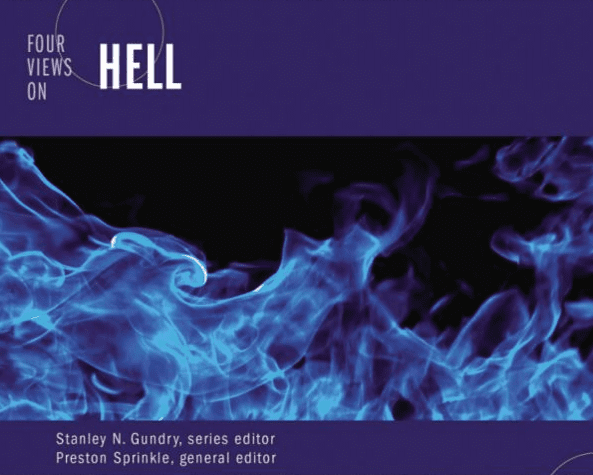 When John Stott’s views were aired publicly in a book called Evangelical Essentials: A Liberal-Evangelical Dialogue (a public debate with a well-known English liberal, David Edwards), evangelical shook. His view was that the wicked will be annhilated; that is, Stott made it public that he — as true-blue an evangelical as one could find — was a conditionalist. I was a young professor at TEDS when that book was published, and I offered a bit of a response at the time in a book edited by W.V. Crockett and J. Sigountos, The Fate of Those Who Have Not Heard, where I focused exclusively on Matthew 25:31-46 (I was a Matthean specialist at the time).
When John Stott’s views were aired publicly in a book called Evangelical Essentials: A Liberal-Evangelical Dialogue (a public debate with a well-known English liberal, David Edwards), evangelical shook. His view was that the wicked will be annhilated; that is, Stott made it public that he — as true-blue an evangelical as one could find — was a conditionalist. I was a young professor at TEDS when that book was published, and I offered a bit of a response at the time in a book edited by W.V. Crockett and J. Sigountos, The Fate of Those Who Have Not Heard, where I focused exclusively on Matthew 25:31-46 (I was a Matthean specialist at the time).
Stott’s view shook many; I heard more than a few strong comments about Stott at TEDS in those days, a man much admired and a leader with enormous influence. Because of the way he was treated, in spite of impeccably careful exegesis, many simply chose to keep their embrace of annihilationism under wraps. (At least a handful of evangelical leaders have told me this of themselves.) But our day has seen a growing number, including Clark Pinnock in the volume we are surveying (Rethinking Hell), of evangelicals willing to embrace conditional immortality.
Stott’s essential argument was this:
1. Evangelicals seem to have a Schadenfreude approach to hell, a gloating and triumphalism and glibness about their embrace of ECT. Stott calls this a “horrible sickness of mind or spirit” (49). Jeremiah and Jesus wept over God’s judgment; they did not gloat. No one, Stott once told me personally, should speak of hell without tears in their eyes. If you can’t emote over this topic, spend time with God until you can, and then speak about hell.
2. He thinks banishment will be “real, terrible…, and eternal” (50). There will be no amnesty.
3. He finds ECT “intolerable and do not understand how people can live with it without either cauterizing their feelings or cracking under the strain” (51). But emotions are not the proper approach to theology. What does God’s Word say?, Stott asks.
4. The language of the Bible focuses on “destruction.” It often means “kill” — if destroy physically means the cessation of life, then hell means the cessation of physical and spiritual life. That is, “extinction of being” (51). It is odd, he observes, to say someone will be destroyed if they are not destroyed. Those who suggest the term means “rendered useless” are softening a term that cannot be softened like that without explicit warrant. Immortality, then, is a gift, not an innate essence.
5. The language of fire is about destruction, too. That’s what fires do: they consume. Hence, he argues, the lake of fire consumes. And the word “eternal” does not mean necessarily “consciousness” but can mean “consequences.” The parable in Luke 16 is about the intermediate state, not the eternal state. He sees the “forever” passages in Revelation (20:10) as symbolic of eternal destruction.
6. He thinks there is an incommensurate justice to punish temporal sin eternally, and he respects the seriousness of sin against an eternal God. I have never figured out how the logic works for those who think sin against God merits/justice-wise eternal or infinite punishment when the human is finite and temporal.
Stott admits he was hesitant to write up his view.











